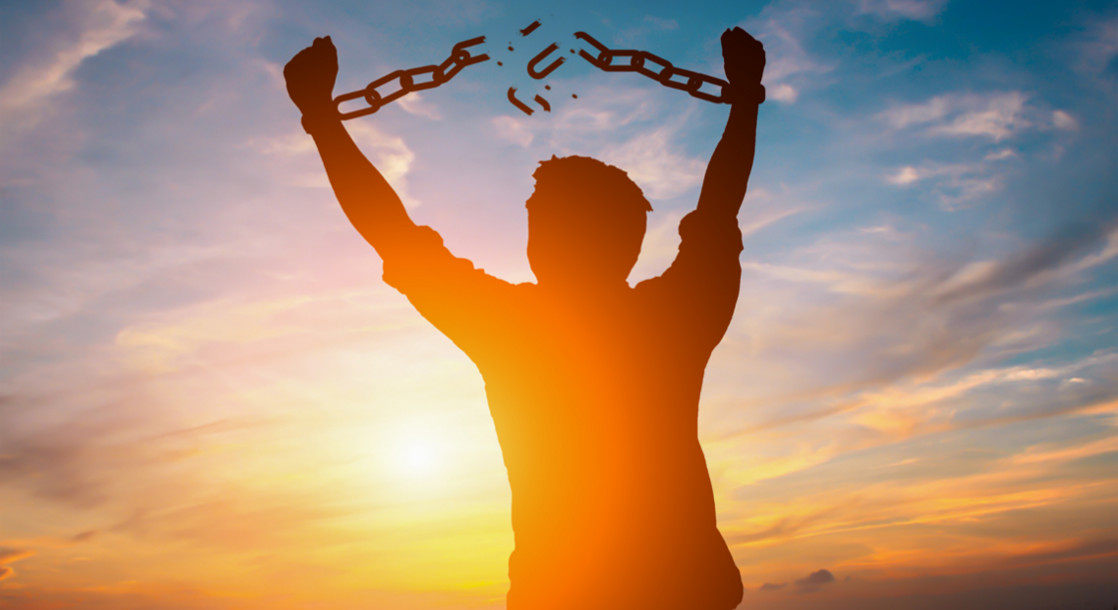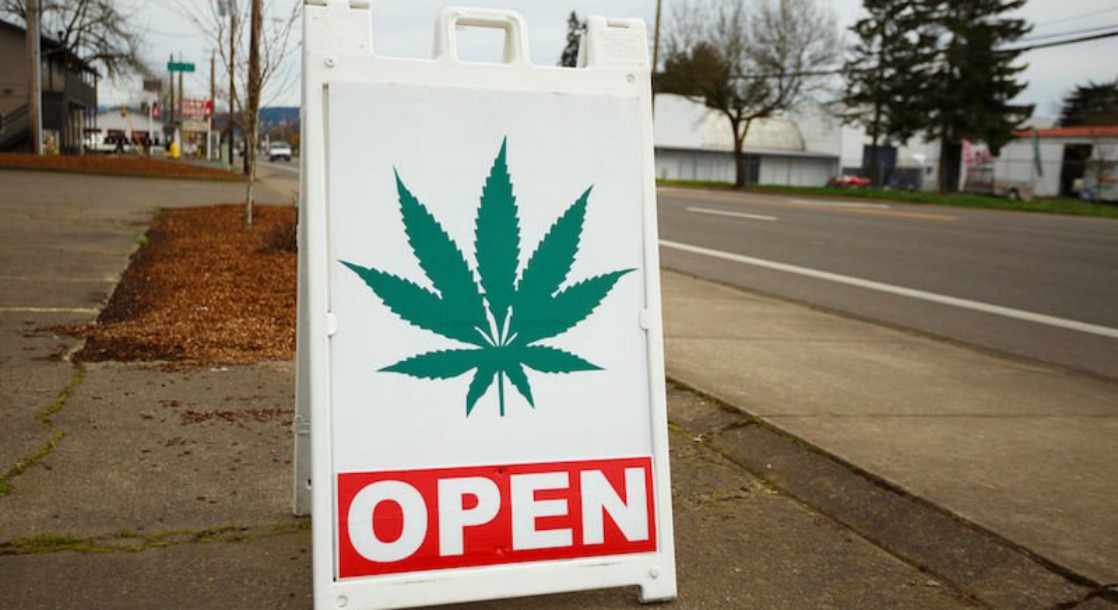Lead photo via iStock/ manop1984
In MERRY JANE’s new docuseries Prisoners of Prohibition, we examine the plight of Americans sentenced to life in prison for cannabis, and the legal struggle for their freedom. A common theme throughout these cases is how U.S. conspiracy law has been used to convict and deliver harsh punishments to low-level players in marijuana trafficking cases, rather than the masterminds truly responsible. By refusing to rat out other participants in pot smuggling, a number of cannabis offenders have ended up receiving life sentences, while bigger bosses served merely fractions of that time. These dynamics aptly characterize the story of Mr. Billy Dekle.
In the 1970s and 80s, Billy Dekle was living in Florida. The former Marine was working as a flight instructor, and found himself in sparse financial times. In order to support his growing family, Dekle decided to do what some of his fellow pilots had already started, and began flying marijuana into the United States. In 1990, one of Billy’s coworkers was caught, which led to his own arrest. He was charged with conspiracy to import and distribute over 1000 kilograms of marijuana, amongst other counts. He didn’t take a plea deal or snitch on his codefendants, and in turn received two life sentences just for transporting cannabis plants.
Yet thankfully, after serving decades in prison, Dekle was finally granted a legal pardon by President Obama as part of the 2014 Clemency Initiative. His life sentences for entirely nonviolent “crimes” were commuted, and Billy began his life as a free man. We spoke with Billy about his legal battle, his family’s tenacity, and what the future looks like for him now.

Billy Dekle, photo via CAN-DO
This interview has been edited for length and clarity.
MERRY JANE: You’re a former Marine — how did you transition from being in the military to getting so deeply involved in the marijuana trade?
Billy Dekle: Well, it was back in the 70s, and I was in the aviation business in North Florida. I had a fixed base operation; I was a flight instructor, had a commercial pilots license and owned several airplanes. Living in Florida during that time, it was the beginning of smuggling of marijuana by airplanes. I was in financial stress, and I’d seen a lot of other people that I knew doing it, and it seemed like a way to make money without, you know, being a real criminal…it’s not like robbing a bank or anything like that.
So you kind of just stumbled upon the opportunity to make more money importing marijuana?
Yeah, like I said, I knew people who were in the business from being in aviation, so I piggybacked in with some of them. The way I felt about it was that a marijuana crime is what I call a consensual crime: Everybody that’s involved in it, even down in South America, and in America, is consenting; agreeing with it. With other violent crimes, people are not happy about the crime being committed. You know, nobody even knew we committed a crime until sometime years later, when a member of the group gets busted and tells on you, and you wind up getting a conspiracy charge.
Could you talk a bit about how you were caught?
Well, I was indicted and was charged with importing over 1000 kilograms of marijuana, conspiring to import over 1000 kilograms of marijuana, conspiring to divest with intent to distribute over 1000 kilograms of marijuana; then they broke that down to eight more counts of importation and possession with intent to distribute 100 kilograms of marijuana. So I wound up on a 14-count indictment with ten counts I was named of and two conspiracies…I got two life sentences for those two, and and I got a thirty-year sentence for the non-conspiracy acts.
You weren’t the main person who was caught, but you were the last person left in prison out of the group of your co-conspirators.
Yes, I had a partner, a fellow that was just as culpable as I was, and he got ten years because he cooperated…
When you’re saying these people were “cooperating," do you mean they named names?
Yeah, they went to the grand jury and testified and helped get an indictment on me, and then after the indictment was on me, they went to court and testified against me, so they got reduced sentences.
Do you speak to any of these people still?
I have spoken to some of them. Some of them aren’t alive because they died of natural causes.
Did you think your sentence would be as severe as it was?
No. I’ve heard to people getting life sentences, but not for marijuana. And [regarding] life sentences, I’ve always thought that after a certain time you could get out, that it wasn’t really a life sentence — I was under that impression. But, when I got my life sentences I found out that they were actually until you die — natural life sentences — there was no getting out. I had to get clemency from President Obama. That's the only reason I’m sitting here with my wife now.
How did you successfully pursue clemency? What resources were crucial for you?
Well, I had a lot of help from my family and my wife. They had stored them and kept a lot of my records, so when i started to file for my clemency, I’d write my wife and my daughters and they’d get everything together for me and mail it to me. I started structuring my petition for clemency in such a way that was very, very easy for the pardon attorneys to look at and see the issues that I was raising.

Billy Dekle with his wife, Kay; photo courtesy of Billy Dekle
From when you first started the application for clemency to when you found out you were granted clemency, how long did that process take?
The first time I filed it took almost two years to get denied. I was at USP (United States Penitentiary) Big Sandy in Kentucky, and another fellow in the dorm with me also filed for clemency. We both got our denials at the same time, and it looks like it was off of a form letter. His read the same as mine did, except for mine had my name on it and his had his name on it. It said, ‘You can’t appeal this, we don’t have to give you a reason why, but you can refile in a year.’ Well, I planned on refiling in a year, and when I did refile it was basically the same thing that I’d filed the first time, because not much had changed other than I’d done another year in prison.
I got word from some of the activists: They had been in touch with people with in Washington and said it was looking favorable for us, so I needed to go ahead and get mine in. I filed basically the same one I’d filed before…and then while I was waiting to hear back on that, they came out with the Clemency Initiative. Also, [former U.S. Attorney General] Eric Holder came out with a memo telling U.S. Attorneys that the 851 Sentence Enhancement was being overused. It was not supposed to be used to coerce people into pleading guilty. It was supposed to be used against very high-level kingpins.
I had it in my sentencing, and in one of my appeals where we objected to them using 851 on me, they said the reason they used it on me was because I would not plead guilty and cooperate. They said if I’d plead guilty and cooperated, they wouldn’t have given me the 851 Sentence Enhancement. Eric Holder also that if you were being sentenced today for the same [crime] you were sentenced for back then, would you receive the same punishment today? And [now] they wouldn’t have given me the 851 Sentence Enhancement for just exercising my right to go to court, to have a trial by jury — I wouldn’t have gotten a life sentence, I would have probably gotten 20 years or something. I put a copy of Eric Holder's memos, a cutout of the photocopies where they’d told me that was the reason I was getting an 851 Sentencing Enhancement, and then I got a lot of letters and things like that from the community, friends and people I’d known for years and years, saying I’d get a job, that it was time for me to come home. There were several hundred…I had a lot of support.
Do you remember the day you found out you were granted clemency? Could you tell us a bit about that?
That… that was on my wife’s birthday: December 18th, 2015. It’s kind of choking me up right now thinking about it. [A few weeks before] I had got word that my lawyer was calling me, and a case manager called me into his office and asked me to sign permission to send my records up to the pardon attorneys…I called my wife and told her something’s going on. I’d always felt like if anybody looked at my case they’d say, ‘This is the kind of person that deserves clemency, and we can let out and we don’t have to worry about him committing another crime.’ So several weeks later, I get contacted again by my case manager, on December 18th, and he says, “You need to be at receiving and discharge, you’re having an attorney call you.” A few minutes later, my lawyer, Caitlin Naidoff, called. She said, “We just got word that your petition for clemency has been granted, but you don’t get out today. You get out in 120 days because they want to send you to a halfway house.”
What was your experience like at the halfway house?
That was completely unnecessary for my case. Some people may have needed it to get something together so they wouldn't be destitute when they got out. But I was fortunate because my wife stayed with me the whole time, and took care of the kids. She took care of everything, so I had a place to go.
Your wife sounds amazing.
Oh she is. I had a place go, and a job, and everything. I just needed to be able to get to it.
What happened after the halfway house?
On April 15, 2016, I went from being at the halfway house to supervised release, a.k.a. parole. I have ten years of supervised release. [My probation officer] lowered me down from intensely supervised release to the medium-supervised release, and after about a year, I went from the medium to the low-supervised release. Basically I send in reports every month, and I can’t go out of the middle district of Florida without permission…I’m trying to petition to get off that. From what I’ve read, it’s to get you back into the community and to get you stabilized [outside]. They encourage people to get off early…me and my wife are both retired, and we’d like to travel, and we can’t travel far without permission.
What is life like for you now as a free man?
We’re just like a normal couple. I do a lot of yard work, a lot of ‘honey do’s;’ my wife keeps me a pretty good little list of things that need to be done. I’m 68 years old and my wife’s right behind me, so we’re just trying to do as many things as we can together while we can. We’re honeymooning’ we’re still on our honeymoon. I’ve been out now a little over two years.
What are your thoughts on how America’s relationship with marijuana has changed over the years?
Well, one thing that some of the people I was smuggling marijuana with ― way back 35 years ago — one of the feelings we had was we didn’t feel like we were really doing any harm. We felt like we needed to hurry up and make our money while we could, because the stuff could be legalized at any time. But we were wrong there. It’s still illegal; it took a long time for enough people to come around to our view on it.
What you think should be done regarding America’s cannabis laws?
I think it should be legalized everywhere, medically and recreationally. This is one thing I thought about when I was in prison. I believe everybody that wants to smoke a joint is smoking it right now whether it’s legal or not. All you’re doing is making criminals and making an underground economy, and I don’t think that’s right and that’s a tragedy.
Before we go, what’s your wife’s name? It sounds like she is the hidden hero of this story.
Yes. Her name is Catheryn, but everybody knows her as Kay. I’ll send you some pictures of us at our 50th high school class reunion. It was the first one I was able to go to!

Billy and Kay Dekle; photo courtesy of Billy Dekle
***
To learn more about America’s pot prisoners and what you can do to help, please visit our homepage for Prisoners of Prohibition, watch the series, and please spread the word! For even more info and ways to join the fight for cannabis justice, we highly encourage you to visit the website of CAN-DO, a nonprofit advocating for clemency for all nonviolent drug offenders. It’s time for all of us to stand up for our rights!











